Zainab Johnson's "Hijabs Off" comedy special aims for authenticity and laughs
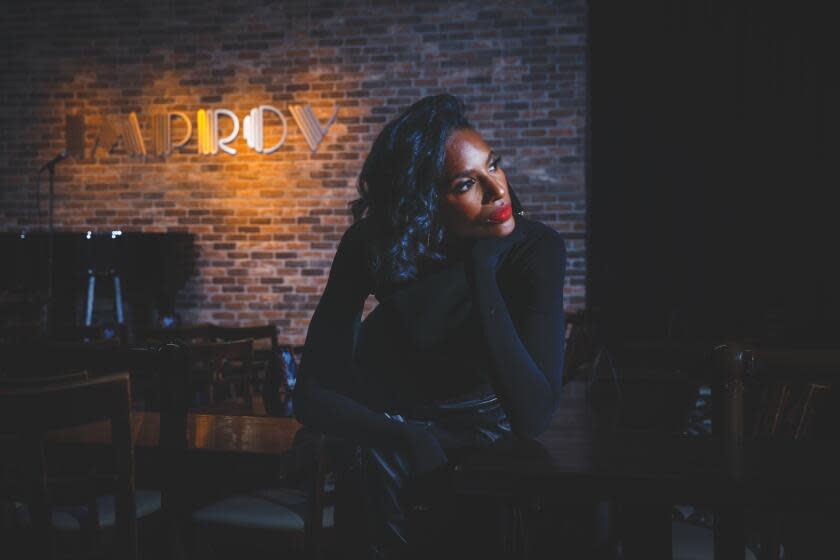
If Zainab Johnson hadn’t been standing in the mirror at the Hollywood Improv there would’ve been no other Black female comedians on the wall.
Johnson stood on a box looking into a mirror during a recent photo shoot, alternating between serious vogue looks, smiling and posing just so — she truly looks like a model — with praise from her team as they looked on. Her reflection gave the optical illusion that her face was one of the famous stand-up comics the club proudly endorsed like George Carlin, Jay Leno, Sarah Silverman and Chris Rock. But none of the iconic stand-ups mounted in the halls of the famous club on Melrose Avenue looked like Johnson or had life experiences that were anything like hers.
But she hopes to have her name and face recognized among comedy legends someday soon.
“You can't have a conversation without mentioning certain comedians, and I want to make sure that when you have a conversation about comedy in this era, that you have to mention Zainab Johnson,” she said.
Johnson sees her Amazon Prime Video comedy special “Hijabs Off” as an opportunity to show viewers and her fellow stand-up comedians who and what she is all about.
Johnson plays Aleesha Morrison in the science fiction comedy television series “Upload”, has performed on “Late Night With Seth Meyers”, has appeared on “A Black Lady Sketch Show” and is a former semifinalist on NBC’s comedy competition show “Last Comic Standing”. But her special is a laugh-out-loud, thoughtful and honest look at Johnson’s life as one of 13 children, growing up Muslim, and more that tells her story in a much bigger way.
It’s the kind of moment Johnson hopes will be part of her legacy — being a woman who was unapologetically herself, funny with grace and making people feel seen.
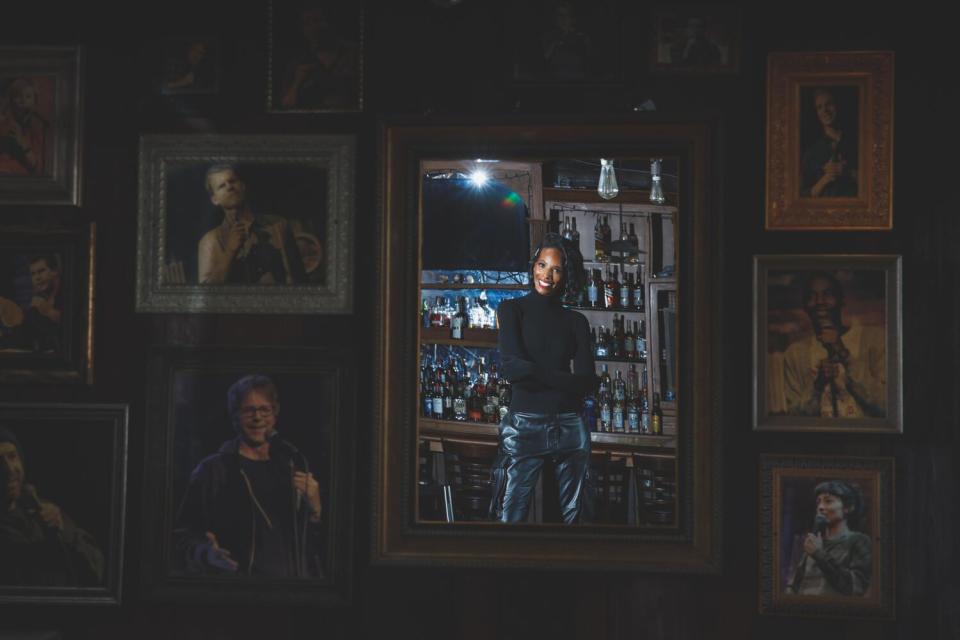
I feel like this is the perfect introduction to the world,” Johnson said. “This not only gives the world access to a very solid foundation of who I am and what my comedic style is. It is definitely the building block of a nice legacy — maybe 40 years from now some dynamic comedian will speak about my special.”
Growing up in Harlem with her large family, Johnson didn’t know she would want to become a stand-up comedian. As a young girl, wearing a hijab, she initially thought that she wanted to be an actor, not to be rich and famous, but instead “because they are the only people in life that get to be everything and I thought, I don't want to just choose one thing.” As a kid, she matter-of-factly told her father while they watched a movie that as an actor she would have to do nude scenes.
Read more: For Zainab Johnson, convincing people she’s Peter Pan, not Rufio, is taking time
“I remember really stating my case in the theater and I'm like, ‘because, you know, art reflects life’ and ‘in some areas in life, women have to show their breasts, so I just want you to get used to it now,’” Johnson recalled, laughing at the memory. “I remember him [saying] 'what have you been reading?,' 'where is this coming from?,' and also 'shut your a— up, ain’t no daughter of mine going to have her t—s out on the screen.'”
Johnson also remembers seeing shows such as BET's "ComicView," "Kings of Comedy" and "Queens of Comedy." But a highlight for her was when her parents put in the VHS tape of the 1987 film “Raw” with Eddie Murphy.
“As I watched it, I'm like, ‘Oh, this is the best thing I've ever seen’ and so for a very, very long time, and probably still to this day, Eddie Murphy's 'Raw' is my favorite stand-up special,” Johnson said.
But there was also a time where Johnson thought she wanted to be a secretary. The children she went to school with often had mothers who were executive assistants. Johnson’s mother stayed at home and took care of children. But Johnson said that looking back and knowing how phenomenal her mom is and was at the time, she recognized she used to feel ashamed her mom stayed at home.
"Before Clair Huxtable, the job that women had that was glamorous, was they worked at some desk in an office building answering phones," Johnson said. “These women are wearing lipstick and they got curls in their hair, I'm a part of a no-makeup family, always covered up, very modest, that is very different and so that was my aspiration for a short moment, just because of what it seemed like.”
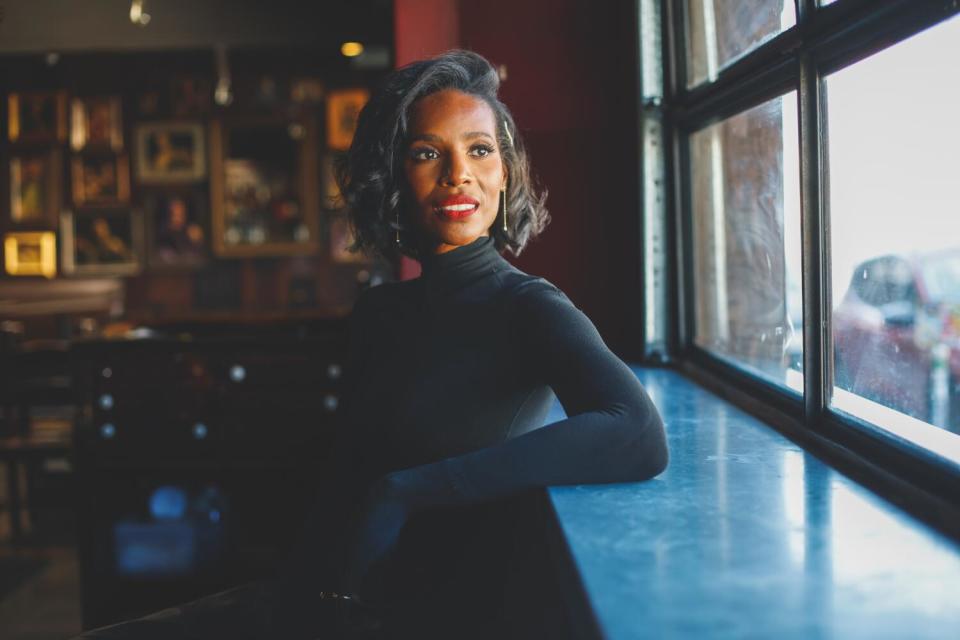
When she was in high school, Johnson thought she would become a “cool young math teacher” because it seemed like a practical choice. She even thought she would play for the WNBA since she played basketball at the time. But before going to her first open-mic night, Johnson never thought she was funny.
“I don't think I felt unfunny, but I don't think I felt funny,” Johnson said. “I knew people would like to be around me and I mean, I was always poor, so it wasn't because I had material things to offer them, so in retrospect, I would imagine it was maybe my personality.”
Read more: Crack ‘Em Up Thursday continues breaking barriers for Black comics on its 20th anniversary
In college, Johnson and her friends would often opt for nights at comedy clubs rather than nightclubs and over the years she recognized all of the different people she had seen live like B-Phlat, Marina Franklin, Mike Epps, Pat Brown and Bill Burr. After moving to Los Angeles, Johnson eventually decided to try stand-up comedy by Googling “open mics” and found one at Amsterdam Cafe in North Hollywood. She strategically chose this one because she assumed she was going to do poorly and she wanted to be able to escape to her apartment quickly.
To prep for the evening, she wrote down a few jokes but didn’t time herself to see if it would meet the set time. The first joke she wrote was about one of her brothers who she refers to as “the criminal.”
“He would claim that he was such a good Muslim because he abstained from eating pork, but it's like, yeah, but you rob people,” Johnson said. “And I just remember thinking that that was ironic enough to be funny…and people laughed.”
She doesn’t remember the rest of the jokes she told from that set but she remembers how well it went.
“In order for me to tell them about that particular brother I had to tell them that I was part of a big family and I remember when I said it, I was like, ‘yeah, I'm one of 13’ and then the reaction was unexpected, it was like a standstill,” Johnson said. “And then I just remember not even thinking it was a joke, saying, ‘Oh, from the same mother and father,’ and that got a big laugh. It's like I was learning in the moment not just what is funny, but what my particular brand of funny is.”
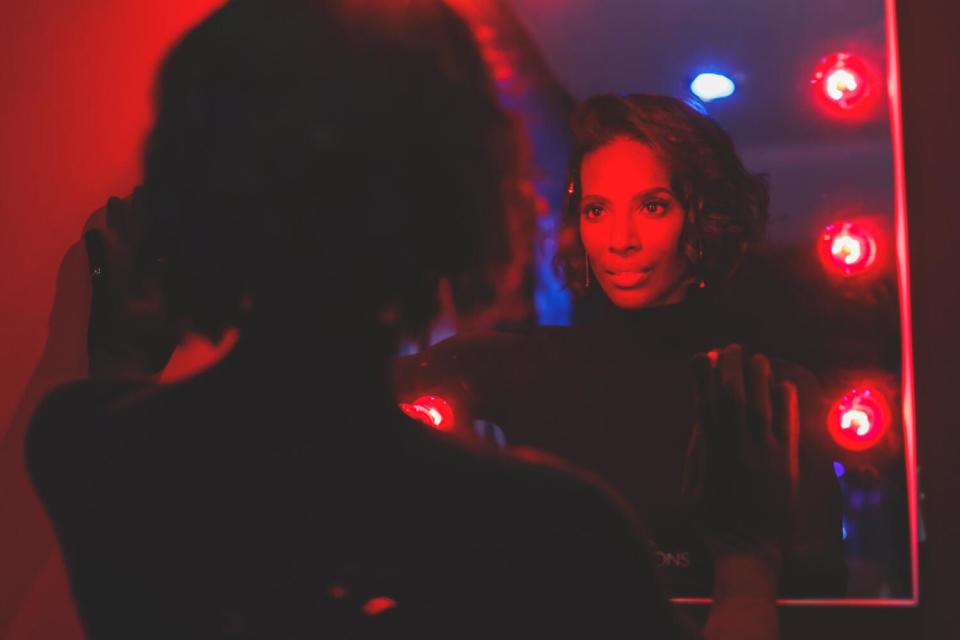
Johnson said the biggest misconception people have about being a comedian is the assumption that comedy is easy. She pointed out that “it's very easy to be funny by accident” but it’s difficult to be consistently funny. What’s more, she said, the ability to make an audience of people who don’t know you, have never seen you, don’t have your background or the same people in their lives collectively laugh at a joke is a tough feat.
“You could tell a joke 50 times and it killed 50 times and then that 51st time the audience is silent and looking at you like, ‘Are you sure this is what you do?’, ‘You sure you don't want to be a math teacher?,’” Johnson said. “And then you have to figure out a way to navigate that and then decide how the 52nd time is gonna go.”
Read more: The 60 best places to see stand-up comedy in L.A.
One of the more memorable moments for her was when she performed at the Den and Denzel Washington happened to be in the audience. The room buzzed about Washington’s presence, but Johnson was determined to stick to her set jokes and not mention him. But the male comics who went before her were making fun of a group of women who had not been laughing.
When it was her turn, Johnson remembers looking at one of the women in the stoic trio and wishing she could telepathically give her a message to laugh. "‘Girl, do it for me, don't let me bomb in front of Denzel,’” Johnson said with a laugh.
Johnson recalls the set going well and Washington telling her she’s talented. But she also will always remember one of the women from the friend group mentioning she hadn't laughed because she didn't like her teeth. It made her more mindful onstage.
“Talking onstage, doing stand-up, that's very egotistical, some say narcissistic, it’s very selfish,” Johnson said. “As much as you may be gifting the world with laughter and joy, it is still a very self-serving thing and I think that incident just cemented something in me to just remember: you up here, and it's about you, but it ain't all about you.”
But even with meeting Washington after her performance Johnson said she would be nervous knowing Murphy was in the audience.
Johnson has also met Murphy a few times after being invited to parties at his home. She said he was a gracious and hospitable host and she loves that he has candy stations around the house. But she wants to meet him as a working stand-up comedian, not as a longtime fan. Ideally, she wants him to see her perform and like her comedy. Before being asked, she had never considered inviting him to see one of her shows.
“It would be a more perfect moment for me if I was up there having a great show unaware that one of my comedic idols was in the audience and then afterwards, he comes up to me and says how fantastic I am,” Johnson said. “I think I would prefer it to be that way. I mean, of course, I'd love to just be able to say, ‘Hey, Eddie, come to the show’ but I think initially, I would like it to be a bit more serendipitous.”
For her Amazon Prime comedy special, Johnson said the first question she asked herself was “what do I want to say?” She sought to take the audience on a journey. She started making notes on her phone and one friend who is also a comedian gave Johnson markers and index cards to sit down and map out topics. She performed it multiple times in front of comedians and also invited friends who are not comedians to her performances.
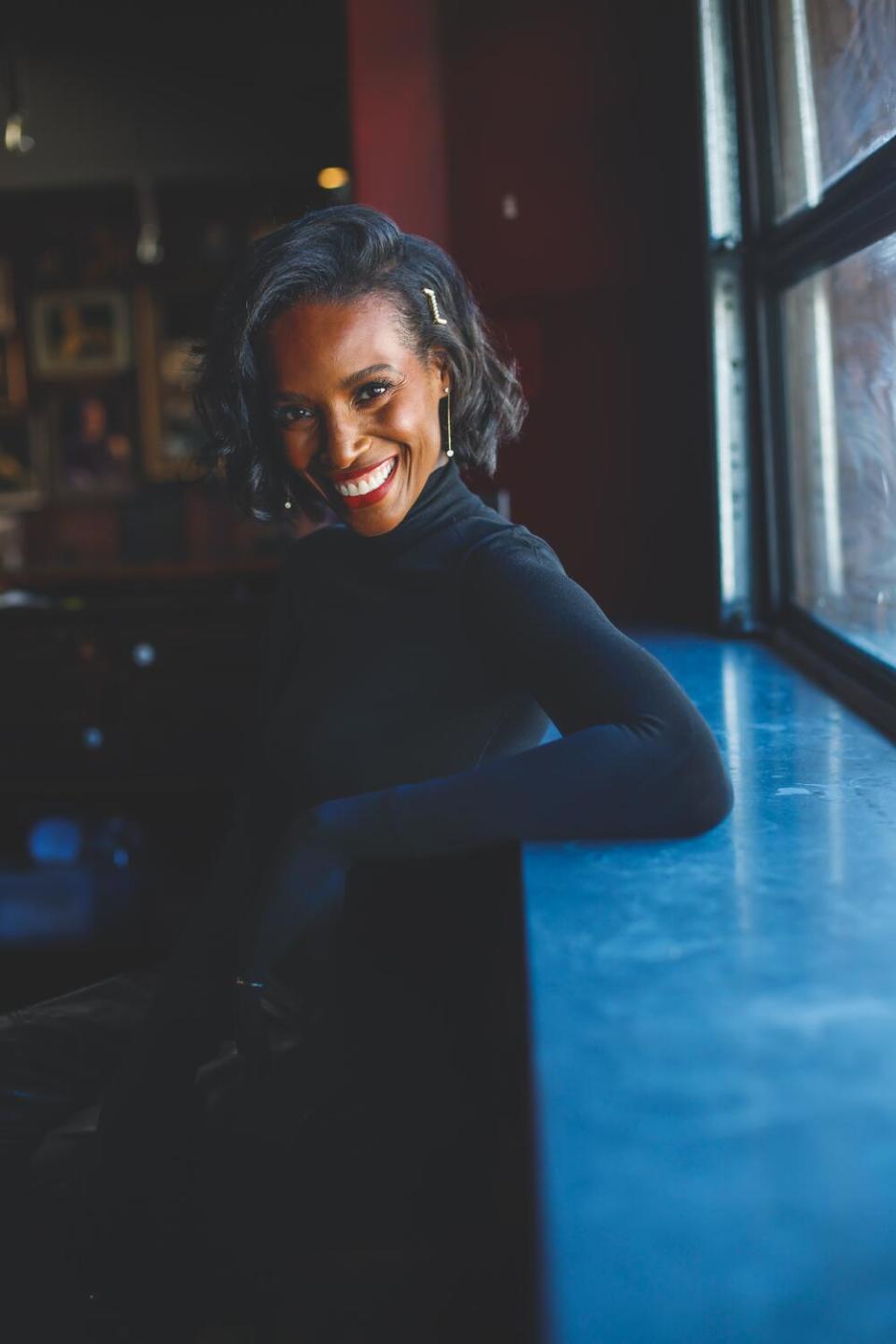
“I just want to make sure that I'm being authentic to who I am and the person that you know, the friend that you know, the person that I am offstage,” Johnson said she told them.
Johnson said there’s a empathy gap in comedy, especially when it comes to getting more prospective comedians from marginalized groups into the industry. But she said comedy has often been “a white guy sport” that then opened up to Black men, and then white women and slowly trickled to letting other groups participate.
“Don't put me on like the quote unquote ‘Muslim show’ just put me on a show and trust that I'm going to be funny,” Johnson said. “Put me on your mainstream night where you got your six other straight white guys on that lineup, put me on that lineup and put more of me so that it's mainstream."
Johnson said most often comics from marginalized backgrounds have to create their own opportunities “because we see us and so we see the humor in us, we see the human in us, we see the joy in us, we can celebrate and all that is empathy.”
Her father died before she became a comedian, but Johnson said she is sure he would’ve enjoyed seeing her perform. Her family members are proud of her and sometimes asked by people if Johnson is funny in real life.
“My whole family will tell you their answer is the same: not really,” Johnson said. “They know that I'm a funny person but [they’ll say] she's not just cracking jokes throughout the day. She's not like a goofy, silly person throughout the day.”
For Johnson, a career in comedy is about more than just looking to see herself on the wall of a comedy club, it's about reflecting on her life and the important people in it.
“[My mom] actually said to me the other day, 'It's wonderful to see Zainab talk about me when she performs because she always speaks about me with such reverence,’” Johnson said. “I don't know if it's a conversation you ever get to have with your mom, like ‘I see you as this,’ but I think my mom likes watching me perform because there’s a certain part of herself realized in me performing.”
This story originally appeared in Los Angeles Times.


